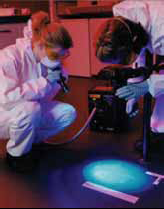Addressing challenges of mobile forensics evidence
Two new White Papers have been issued to address the challenges faced by prosecutors as they prepare witness statements involving mobile forensics evidence.

Two new White Papers have been issued to address the challenges faced by prosecutors as they prepare witness statements involving mobile forensics evidence.
With the widespread use of mobile phones, mobile data evidence is now more critical than ever in criminal investigations and trials. However, judges, juries and sometimes lawyers themselves have difficulty understanding, or have misperceptions about, the nature of mobile devices, digital evidence and/or digital forensics.
Therefore, lawyers must be ready to meet legal challenges to mobile forensic evidences admissibility as scientific evidence. This includes preparing trial witness statements on mobile data extraction, preservation and analysis processes, as well as addressing specific legal tests.
Released by mobile data forensics specialist Cellebrite during the National Cyber Crime Conference in the US in April, the White Papers are entitled Preparing Testimony about Cellebrite UFED in a Daubert of Frye Hearing and What Happens When You Press that Button? Explaining Cellebrite UFED Data Extraction Processes.
During the conference a mock trial was also held that examined the admissibility of digital evidence.
The extraction of vital evidentiary data includes call logs, phonebook, text messages (SMS), pictures, videos, audio files, ESN IMEI (electronic serial number), ICCID (integrated circuit card identifier) and IMSI (international mobile subscriber identity) information.


